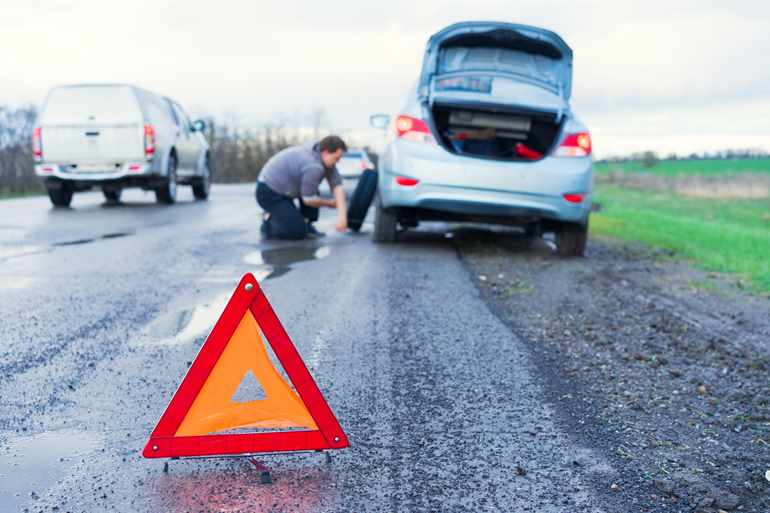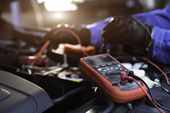
What emergency essentials should you keep in your car?
Nobody wants to be involved in an emergency, but it's always a risk for all of us that we might be. Whether it's a breakdown, an accident, or some other kind of emergency situation it pays to have the right provisions in your vehicle. Just a few hours spent making sure your vehicle has the right things on board can save you a lot of discomfort and frustration if you encounter a difficult situation.
So what should you store on board?
1. Documentation and contact details
Firstly, you don't need to worry about keeping your insurance certificate and MOT printout in the car. If it comes to it that you need them your coverage can be easily checked online or via a phone call. Similarly don't keep your driving license in the car. Keep it on you - namely the ID card in your wallet, so that there's no risk of it being stolen if your car is.
What you should keep in the car is a printout of your essential contact details, however. This includes the details of your breakdown cover provider, your insurance provider, and your vehicle replacement gap insurance provider if you have it. These should all be in your phone, but it's helpful to have a backup just in case. It's also wise to include your specific vehicle details, such as your registration number, as well as any individual reference numbers relating to your policy. If your policy has a membership card, keep this in the vehicle as it should have the necessary information printed on it.
2. Your vehicle's user manual
Cars are, understandably, very complex. That means if something goes wrong it's likely to involve a part of your vehicle that you haven't had to deal with very much before. This is where having your user manual handy can help, as everything about your vehicle will be listed in an easy to find and convenient fashion. This could be a control you rarely use, a light on the dashboard you have never seen before, or the location of your vehicle's fuse box. Any information you need will be easily found in your user manual, so always keep it stored in the glove compartment just in case.
3. Reflective equipment
Being stranded is no fun, being stranded when your vehicle is impossible to be seen is even less fun again. This is where a warning triangle and a reflective jacket can come in exceptionally handy. Your car has hazard lights, of course, but these will be of no use if you happen to break down on the wrong side of a blind bend. A warning triangle can help warn other drivers to slow down and beware well in advance. The reflective jacket will help keep you visible if it's not safe for you to be in the vehicle, or if you need to check something outside - and indeed to keep you safe while you place the warning triangle.
4. Spare tyre, jack & jumper cables
A puncture can cause your journey to come to a shuddering halt, so make sure you have a spare tyre and a jack onboard. Keep regular tabs on the condition of the spare tyre, to ensure it's roadworthy in the event that you ever actually have to use it. Similarly, make sure your jack is in good condition. If you have never changed a tyre before it's a good idea to practice at home - you don't want your first time to be on the side of the road in the pitch black and the pouring rain. So get some practice in a comfortable environment. A charged-up battery pack and jumper cables are also invaluable to have available.
5. Miscellaneous items
You should carry some long-lasting food on board, such as energy bars. Something that won't take up much space but will last and provide a burst of energy in an emergency, and it can stop hunger further aggravating your stress or frustration. Similarly, you should always carry sealed fresh water on board. This can be used for drinking, as well as for topping up your engine's fluids if you absolutely have to. Carry a spare mobile phone charger and a torch, ideally one that can be wound up, as well as a basic first aid kit with antibacterial wipes and some basic dressings.
Being prepared doesn't take much time, but it will be invaluable to you if you find yourself in an emergency - so ensure you always have these essentials to hand.



